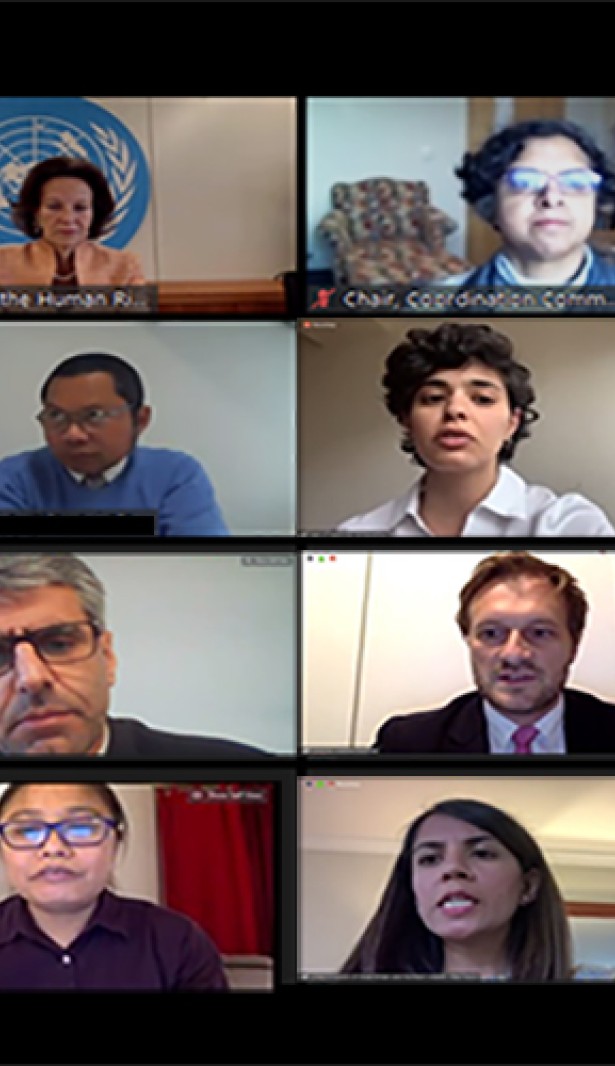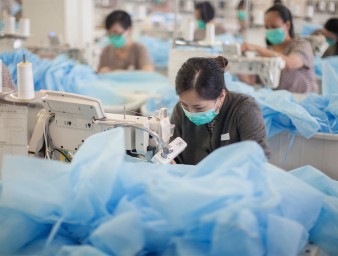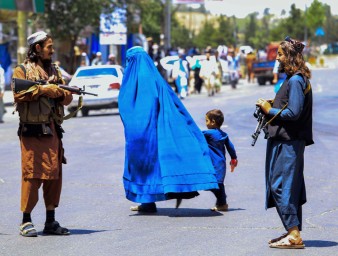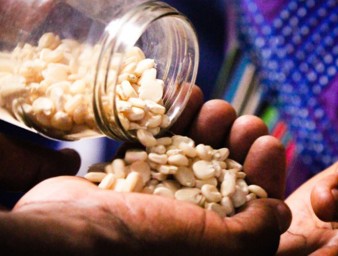Human Rights Council talks COVID-19 with independent experts
30 April 2020
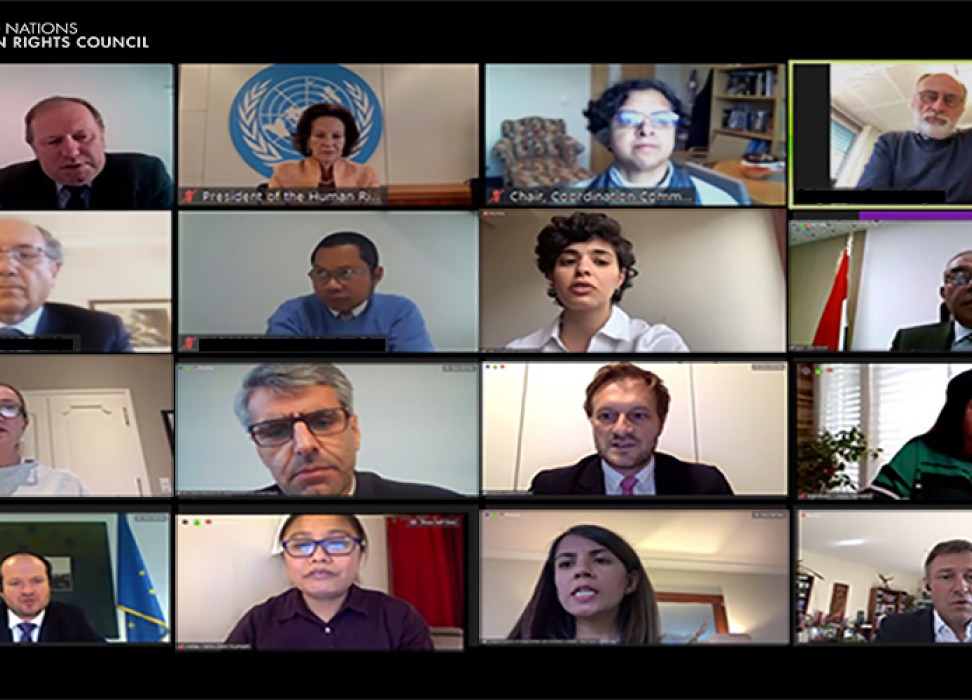
Since the World Health Organisation declared COVID-19 a global pandemic on 11 March, world leaders, health experts, community activists and ordinary citizens have spoken out resolutely keeping the public informed of minute-by-minute developments, pronouncing national policies, and imparting advice on to cope with the life-changing effects of the virus.
Adding to this running commentary are the Human Rights Council’s independent experts, the so-called Special Procedure mandate holders, who have been taking various initiatives in relation to the pandemic including producing a steady stream of statements laced with a combination of stern warnings and a degree of optimism pertaining to the impact of the virus on people’s rights.
Speaking on behalf of the current 80 mandate holders at a “virtual conversation” hosted by the 47-member Council today were Anita Ramasastry and Dainius Pūras, Chair and Member of the Special Procedure Coordinating Committee, who echoed their urgent appeals to States and decision makers to ensure COVID-19 policies were deeply rooted in human rights while stressing the multiple human rights dimensions of this crisis.
"These weeks have shown us that the Corona crisis affected essentially all kinds of human rights in one way or another", stated Council President Elisabeth Tichy-Fisslberger. “These include the right to life, the right to health, access to adequate housing, clean water and sanitation, food, information, freedom of assembly, women’s rights, children’s rights and, of course in particular, the rights of all the vulnerable groups”.
From the early days of the crisis, the Special Procedures, often dubbed the Council’s eyes and ears, have issued 45 press statements to date and issued 29 direct communications to States highlighting various human rights aspects of the pandemic stressing the need to overcome inequalities and discrimination.
“In all of our findings and advice, mandate holders have recognized the unprecedented nature of COVID-19 and of the challenges and risks that come with it”, stated Ms. Ramasastry, who also serves on the Working Group on business and human rights. “In particular, we have given attention to the conditions guiding the adoption of extraordinary measures to protect the health and well-being of the population”.
Among the initiatives taken by these human rights experts was a “general call” stressing that “everyone has the right to life saving interventions” and reiterating the importance of addressing all human rights in the response to this global crisis. Spearheaded by the Special Rapporteur on the right to health, Mr. Pūras, the appeal, issued on 26 March and backed by more than 60 mandate holders, stressed that the COVID-19 crisis cannot be solved with public health and emergency measures only.
“Advances in biomedical sciences are very important to realize the right to health. But equally important are human rights”, stated Mr. Pūras. “The principles of non-discrimination, participation, empowerment and accountability need to be applied to all policies. This is the way to effective management of the pandemic”, he added.
Some 40 States and NGOs took part in today’s virtual gathering stressing the need to prioritize social services for the mostvulnerable, the vast challenges the virus has posed on communities around the world, and the many good practices that have emerged as a result of those communities joining forces in response to the pandemic.
“Despite its devastating impact in different parts of the world, the COVID-19 crisis has actually triggered a number of uplifting stories of solidarity and bravery”, Ambassador Tichy-Fisslberger noted. The President cited examples of hosing rents and evictions being waived, improved access to water and sanitation, improved domestic violence response and release of detainees, among others.
Applauding the invaluable role of the Special Procedures, the Office of the High Commissioner, and the Human Rights Council more broadly, in helping States overcome human rights challenges, several participants noted that those challenges have grown massively in recent months due to the ongoing crisis.
At the conclusion of the meeting, Ambassador Tichy-Fisslberger stated: "Human rights are not a luxury. This is not only a health crisis, but also a human rights crisis. This crisis has provided an opportunity for the international community to act as one to overcome challenges.”
30 April 2020
